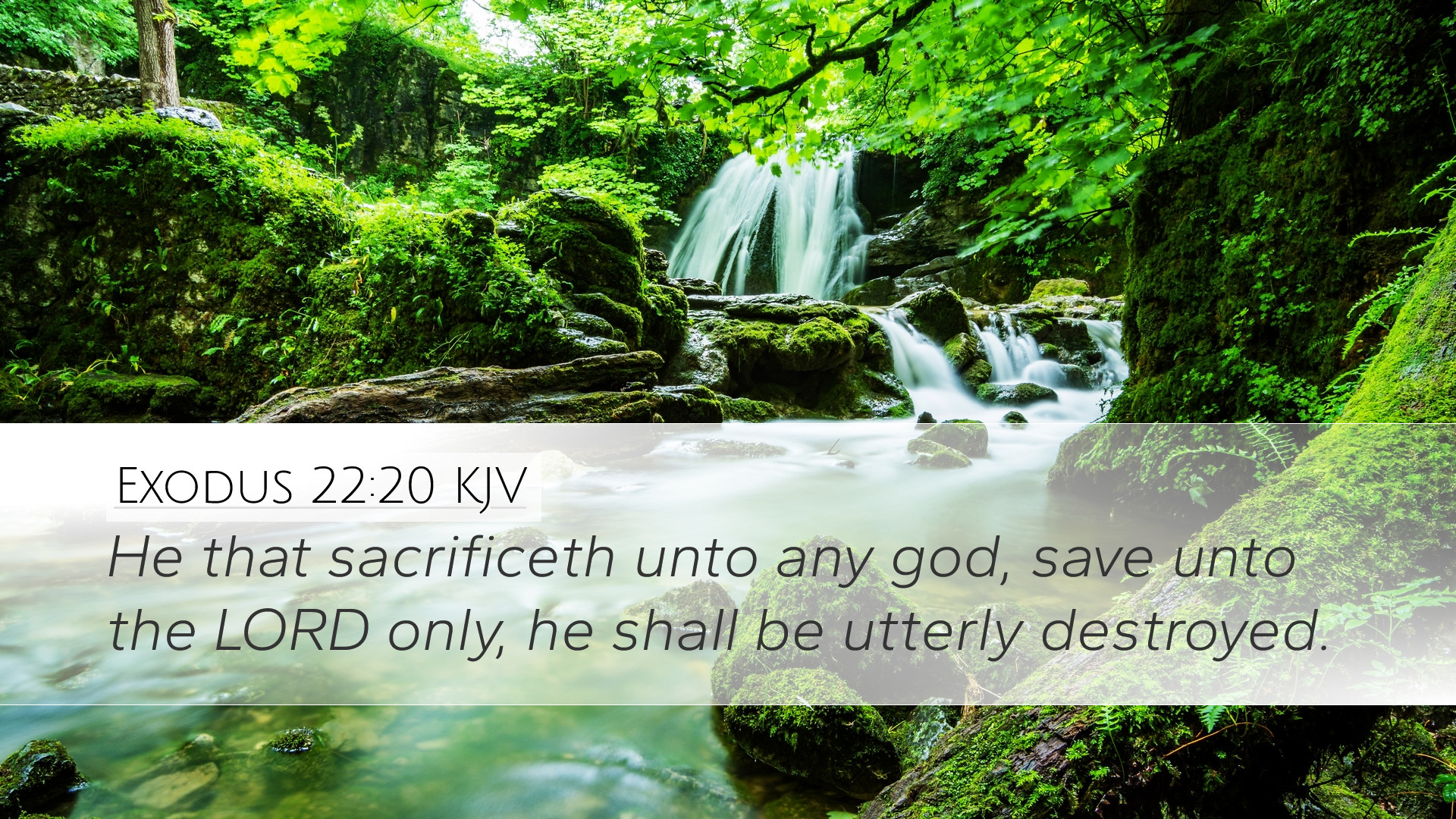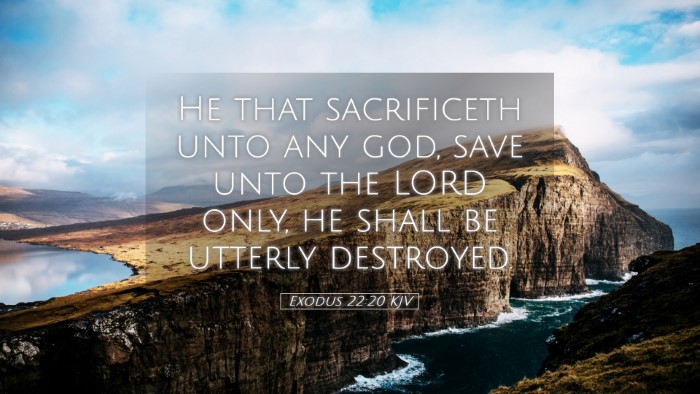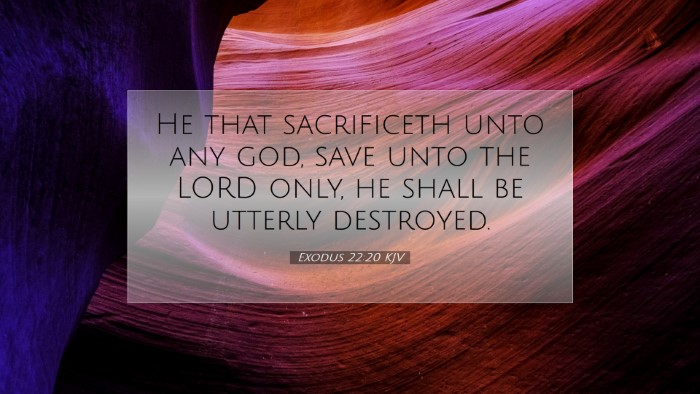Commentary on Exodus 22:20
Verse: "He that sacrificeth unto any god, save unto the LORD only, he shall be utterly destroyed." - Exodus 22:20
Introduction
This verse presents a stern injunction regarding the worship of false gods and the severity of judgment that accompanies idolatry. The context of the verse is situated within a broader legal and moral framework established for the Israelites, emphasizing the exclusive devotion they owe to Yahweh. The public domain commentaries provide valuable insights into the significance and implications of this command.
Theological Significance
Exodus 22:20 reflects a fundamental principle of biblical theology: God’s exclusivity in worship. According to Matthew Henry, the command underscores the gravity of turning to foreign gods, suggesting that worshiping any deity aside from the LORD is not just a minor sin, but a grave offense deserving of severe punishment. This assertion is rooted in a covenantal relationship between Israel and God, who has revealed Himself as their sole protector and provider.
Albert Barnes further explains that this verse serves both to protect the community from the corrupting influences of idolatry and to preserve the integrity of their worship practices. Idolatry often accompanies moral decay and social injustice, which are contrary to the foundational principles given in the Law. Thus, the impartation of such a command illustrates God's concern for the ethical and spiritual well-being of His people.
Cultural Context
In the ancient Near East, polytheism was prevalent, and numerous deities were worshipped. Adam Clarke elaborates on the historical backdrop, informing us that many surrounding nations engaged in ritualistic practices that included sacrifices to multiple gods. This cultural milieu could easily lead the Israelites to assimilate these practices, hence the strong admonition from God through Moses.
Implications for Israel
By issuing such a decree, God instilled in the Israelites a distinct identity as His chosen people. Matthew Henry notes that adherence to this command was crucial for Israel’s spiritual health and societal cohesion. The phrase "utterly destroyed" indicates the seriousness with which God views idolatry; it is an expression of divine judgment that parallels much of the destruction seen in other narratives across Scripture involving idolatrous practices.
Moral and Ethical Considerations
The ethical implications of this command extend beyond mere ritualistic observance. Albert Barnes highlights that the act of sacrifice itself implies a relational engagement with the divine. Thus, to sacrifice to another god is to violate the trust and exclusive relationship established by God with His people. This teaches us about the gravity of fidelity in relationships, both human and divine.
Application for Today
For modern readers, the principle encapsulated in Exodus 22:20 demands a reflection on the nature of allegiance. Adam Clarke posits that while we may not face the temptation of physical idols, the challenge of idolatry persists in various forms—whether they be materialism, power, or personal ambition. The call to worship the LORD only translates to a radical commitment that may require reevaluation of what occupies the central place in our lives.
Practical Steps for Worship
- Self-Examination: Regularly assess areas of life where other 'gods' could be creeping in.
- Community Accountability: Engage with fellow believers who can encourage and challenge in matters of faith.
- Focus on Scripture: Ground oneself in the Word to strengthen understanding of God’s character and commands.
- Intentional Worship: Foster habits and practices that explicitly recognize God’s sovereignty and commitment.
Conclusion
Exodus 22:20 serves as a critical reminder of the seriousness with which God regards worship and fidelity. The insights from Matthew Henry, Albert Barnes, and Adam Clarke collectively illuminate the profound spiritual, cultural, and ethical dimensions of this verse. As affirmed by these commentaries, the call to worship the LORD alone is not merely relational but fundamentally transformative for individuals and communities seeking to honor God in all facets of life.


